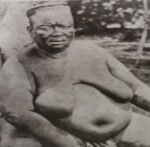ROSE-INNES, JAMES
- October 17, 2024
- 0 Comment
- 3 Min Read
Sir James Rose-Innes (January 8, 1855-January 6, 1942), a white English-speaking South African, was a lawyer, journalist and politician who was attached to the school of white political thought and practice called Cape Liberalism. In later life he turned his back upon electoral politics and dedicated himself to a series of high offices in the South African judiciary.
Rose-Innes was born in Grahamstown in the eastern part of what is now Cape Province. After schooling at Gill College in Somerset East, he went on to read law at the University of the Cape of Good Hope. He graduated in 1877 and in 1878 was admitted to the bar of the Cape Colony. A successful lawyer, he managed to combine this work with a great deal of largely political journalism, in which he expressed the views of a generally anti-racialist and cosmopolitan intellectual living in a rough, tough society.
His relative liberalism underscored by his considerable reliance on an African vote still at that time extended to “qualified” African voters in the Cape when he came to contest the seat of Victoria East.
In his campaign he was supported by J.T. Jabavu, leader of the Native Electoral Association and editor of Imwo Zabantsundu. He was elected to Parliament in 1884, and then, in 1888, was elected a member of the legislative assembly for the Cape constituency. In 1890 he became a Queen’s Counsel, and in the same year was then appointed the Cape’s attorney general in the first cabinet of Cecil John Rhodes.
He broke with Rhodes in 1893, after which, as an unbending liberal, he became politically somewhat isolated. After the Jameson Raid of 1895-96, the British government appointed him as their watch-dog at the subsequent trials of the raiders and their accomplices in Pretoria.
In 1900 he was once again appointed attorney general for the Cape, and from 1902 until the Act of Union was chief justice of the Transvaal. From 1914 until his retirement in l927 he was the Union’s chief justice.
Rose-Innes was not merely a pragmatic liberal. His beliefs concerning Boers and Africans, generally rather unpopular among white English speakers, were held with some consistency and at some personal risk. RICHARD RATHBONE





